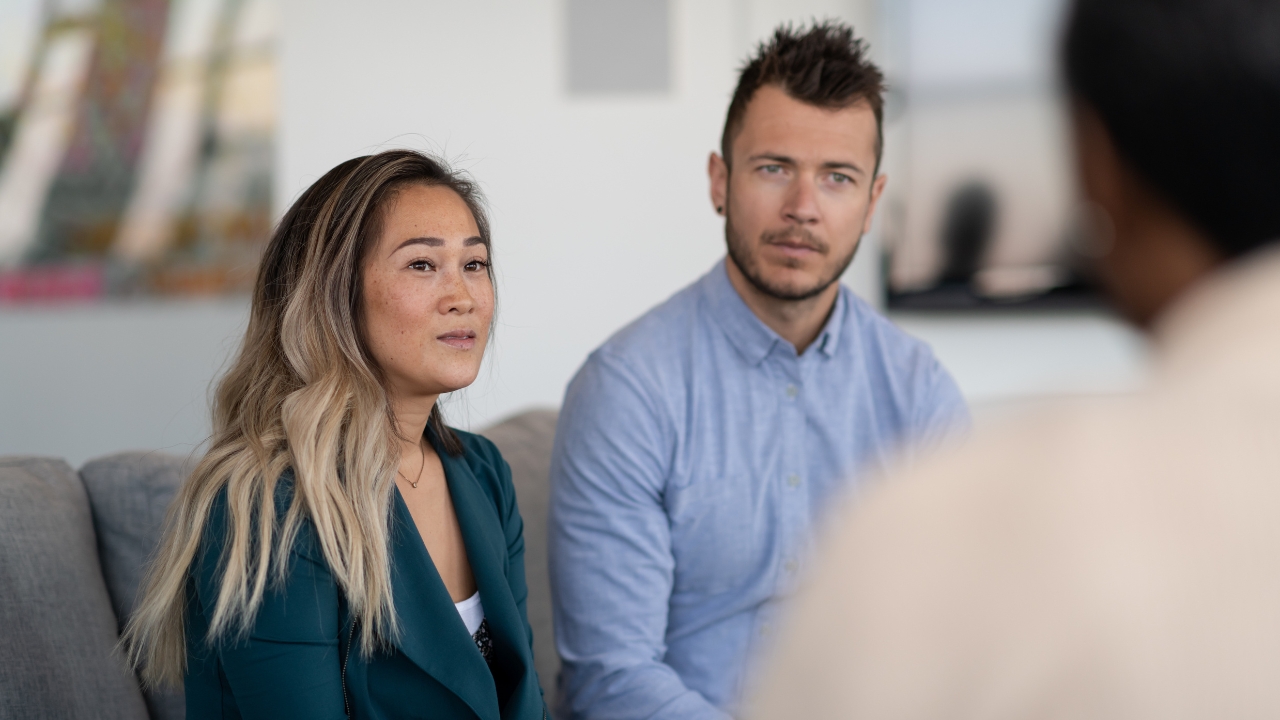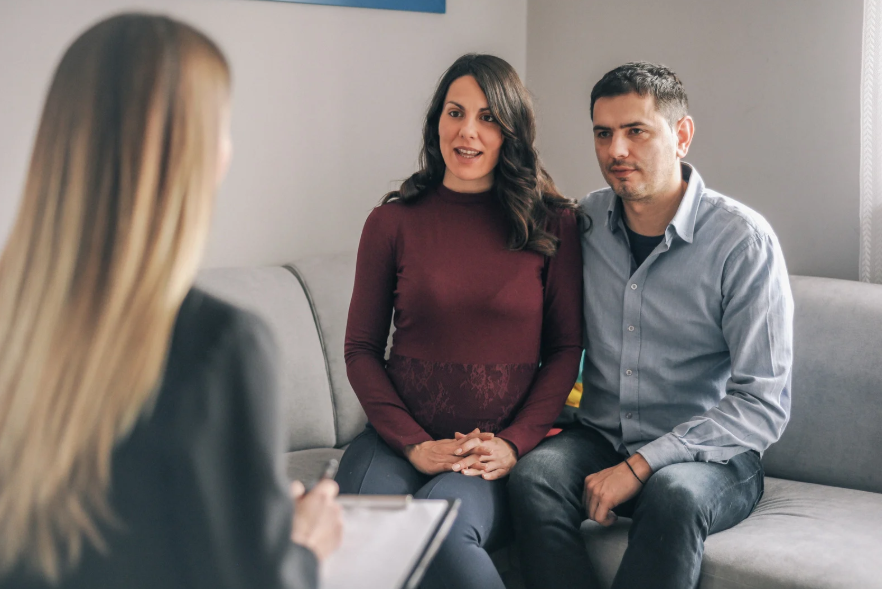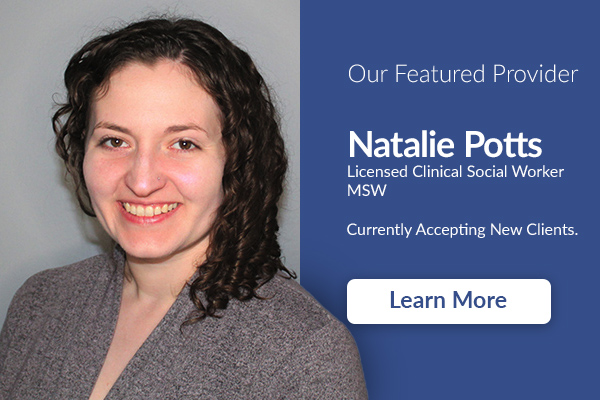Walking into marriage counseling for the first time can feel uncertain, but knowing what happens behind the door can help you take the first step. You can expect guided conversations aimed at improving communication, exploring relationship patterns, and clarifying each partner’s needs and perspectives. Sessions focus on open and honest dialogue, often helping you and your partner learn practical tools to resolve conflict and strengthen your connection.
A typical session might include discussing your shared history, challenges faced as a couple, and your backgrounds. Your therapist will facilitate productive discussions, encourage vulnerability, and provide strategies for better understanding each other. It’s normal to experience a range of emotions as issues surface, but the process is designed to build trust and clarity within the relationship, helping you work through both long-standing and recent concerns.
At SamaraCare, you can find a counselor who fits your needs today, and find out what to expect in marriage counseling.
Key Takeaways
- Counseling sessions help couples improve communication and understanding.
- Therapists guide you through structured conversations and offer practical tools.
- Expect to explore your relationship dynamics in a supportive environment.
Purpose of Marriage Counseling

Marriage counseling offers a structured way for you and your partner to address specific issues that may be causing difficulties in your relationship. Through guided sessions, you have the opportunity to focus on communication, conflict resolution, and building a deeper emotional connection.
Improving Communication
One of the main goals of marriage counseling is to help you and your partner talk to each other more openly and honestly. You may sometimes feel misunderstood or find it tough to express your true thoughts and feelings. Therapy sessions are designed to encourage active listening and clear expression, which can make both of you feel heard and valued.
A therapist will often introduce techniques that help you navigate difficult conversations. You might be taught to use “I” statements, avoid interrupting, and check for understanding to avoid miscommunication. Effective communication goes beyond just talking; it means truly understanding your partner’s needs and perspectives.
Couples who improve their communication skills often find daily interactions smoother. This can reduce stress and prevent small misunderstandings from escalating into bigger issues.
Resolving Conflicts
Marriage counseling provides a neutral space for addressing disagreements or ongoing arguments. You may both bring different perspectives into your relationship, which can sometimes lead to recurring conflicts. During counseling, you’ll work together to identify the causes of your disputes and learn how to manage them constructively.
Therapists guide you in developing practical problem-solving strategies. For instance, you may learn to identify triggers, set boundaries, and use compromise to find solutions that work for both of you. You’ll also get support in recognizing unhealthy patterns, such as blaming or shutting down during arguments, that may be present.
As a result, you can start to resolve issues more quickly and with less emotional turmoil. Many couples find that they are able to address problems early, rather than letting them build up over time, which helps to maintain a healthier partnership, as explained by this overview of marriage counseling.
Strengthening Emotional Bonds
Couples often seek counseling to rebuild closeness and trust when they feel distant from each other. Marriage counseling creates a safe environment for you to talk about unmet emotional needs and past hurts. These conversations, although sometimes difficult, are essential for repairing and deepening your connection.
Therapists help you explore patterns that have eroded intimacy, such as a lack of appreciation or emotional withdrawal. You’ll have opportunities to practice skills that nurture affection and respect, using exercises to rekindle positive feelings.
Over time, new habits and emotional awareness can help you feel more secure with your partner. You may notice increased affection, a stronger sense of partnership, and a clearer understanding of each other’s emotional landscapes, as highlighted by The Couples Center.
How Marriage Counseling Works

Marriage counseling involves both partners working together to communicate more effectively, resolve ongoing conflicts, and rebuild trust. The therapist guides you through a structured process that starts with understanding your relationship, defining clear goals, and engaging in focused sessions.
Initial Assessment Process
Your first meetings with the counselor often involve both joint and individual discussions. This helps the therapist learn about the history of your relationship, current concerns, and each person’s perspective. You will be asked about how you communicate, major sources of conflict, and what led you to seek counseling.
Therapists may observe your interactions to identify patterns and triggers. They often ask open-ended questions such as “What brought you in?” or “How do you handle disagreements?” This phase may last a few sessions, but it is essential for setting the foundation.
The assessment also covers practical details like your goals for therapy, commitment levels, and background information. The goal is to ensure both partners feel heard and understood before moving forward. For more insight into typical assessment questions, see this list of common topics a couples therapist may explore.
Establishing Counseling Goals
Setting goals is a collaborative process between you, your partner, and the therapist. Goals often include improving communication, rebuilding trust, increasing intimacy, or resolving specific issues like finances or parenting styles.
You might be asked to clearly state what positive changes you hope to see. The therapist helps both partners express their desired outcomes and prioritize the most urgent issues. Goals are usually realistic, measurable, and time-bound so progress can be tracked.
Clear objectives give direction to each session and help you stay focused on solutions. This stage helps both partners feel purposeful in their participation and gives a sense of shared commitment to making progress. According to Therapy Group of NYC, willingness and commitment from both partners are critical for effective results.
Typical Session Structure
Sessions usually last 50 to 60 minutes and often follow a consistent structure. Therapists may begin with a quick check-in, followed by a focused discussion on ongoing issues or recent progress. Some sessions are dedicated to specific skills such as conflict resolution, active listening, or emotional regulation.
You and your partner are encouraged to share your experiences and respond to each other with support from the therapist. Collaborative exercises and homework assignments are common to reinforce new skills outside of sessions. The therapist maintains a neutral and supportive role, helping to manage emotional intensity.
Session frequency can range from weekly to biweekly, depending on your needs and progress. This consistency builds momentum and allows the changes in the relationship to take root. For more details on what to expect during early sessions, review this overview from The Couples Center.
Roles of the Counselor and Participants

Both counselors and couples have clear, important roles in marriage therapy. Understanding these roles helps set realistic expectations for the counseling process.
Counselor’s Responsibilities
A marriage counselor is trained to guide both partners through challenging conversations in a safe, neutral environment. They structure each session by asking questions, offering feedback, and highlighting recurring patterns in communication or conflict.
Your counselor will not take sides. They keep the focus on mutual understanding and shared goals. Their job includes maintaining confidentiality, encouraging open dialogue, and making sure both of you have opportunities to speak without interruption.
You may also find your counselor uses evidence-based strategies, such as teaching specific communication skills or introducing exercises for building trust. They may assign homework to build practical skills outside of the session. For more on what counselors provide, see this overview of marriage counseling.
Active Participation by Partners
When couples seek help to improve their relationship, active participation becomes crucial from the first session onward. Many partners enter couples counseling or relationship therapy with uncertainty about what to expect from couples counseling. An experienced couples therapist or licensed marriage and family therapist will typically outline the process during the first few sessions, including potential questions to expect and the types of couples therapy that might be utilized.
For relationship counseling to be effective, both members of a married couple must engage fully in this form of therapy. Sometimes, individual sessions may complement joint meetings, similar to approaches used in family therapy. Marriage and family therapists emphasize that success depends on both partners’ willingness to address relationship issues openly.
Whether through traditional marital therapy, marital counseling, or online therapy, the commitment level that partners bring often determines outcomes. Mental health professionals in marriage and family practice consistently find that couples who actively participate rather than passively seek therapy achieve more meaningful progress than those approaching sessions like individual therapy.
Common Techniques and Approaches

Marriage counseling often combines evidence-based strategies to address core issues between partners. Sessions focus on improving patterns of thinking, emotional responsiveness, and key communication habits.
Cognitive-Behavioral Strategies
Cognitive-behavioral approaches examine how your thoughts, beliefs, and habits affect your relationship. In counseling, you may explore patterns that lead to misunderstanding or conflict. The therapist helps you recognize negative thinking and create more constructive perspectives.
You’ll be encouraged to identify triggers for arguments and practice reframing automatic responses. Structured problem-solving models guide you to address specific issues one step at a time.
A common technique includes tracking thought patterns in a journal and discussing them with your partner. This supports lasting change by linking daily experiences to deeper relationship dynamics. Many couples find increased self-awareness and a more collaborative attitude through these methods.
Emotionally Focused Methods
Emotionally focused therapy highlights the role of attachment, emotional safety, and responsiveness between you and your partner. The approach helps you recognize patterns that distance you emotionally, then guides you to express core feelings beneath anger or withdrawal.
Counselors will guide you to practice vulnerability by sharing needs and fears openly. In-session exercises often include role-playing conversations and reflecting on emotional triggers.
Your counselor may use techniques like reflecting feelings or validating your emotional experience. This helps build trust and empathy, making it easier to break out of negative cycles. Research has shown that emotionally focused therapy can improve intimacy and strengthen your emotional bond.
Active Listening and Communication Skills
Marriage and family therapy emphasizes active listening as a cornerstone of effective communication between partners. When couples start marriage counseling, they often wonder what to expect from marriage counseling and whether counseling works. A good marriage counselor creates a safe environment where both parties can express themselves freely. Research from the American Association of Marriage and Family Therapy suggests that marriage counseling is effective in up to 70% of cases.
When couples go to couples therapy, they learn techniques that help couples understand each other’s perspectives. The success of couples therapy largely depends on both partners’ willingness to actively participate. Therapy can help partners develop empathy and improve their listening skills, which are crucial for resolving conflicts. Many couples who attend counseling report significant improvements after just a few sessions.
The type of therapy recommended by your couples counselor will depend on your specific challenges. While some benefit from individual counseling alongside joint sessions, most experts from the Association of Marriage and Family Therapy recommend consistent joint attendance. The number of sessions needed varies based on the couple’s issues, but most see improvement within 12 sessions. Marriage counseling can help restore connection, and counseling may be the key to rebuilding a healthy relationship when both partners commit to the process.
What to Expect During and After Sessions

Marriage counseling sessions provide a space for you and your partner to examine communication patterns, address challenges, and receive professional guidance together. The process includes discussions during the meeting, activities to do outside of sessions, and specific benefits and challenges you may experience as progress unfolds.
Open and Safe Environment
Sessions are structured to promote open discussion and mutual respect. A skilled therapist acts as a neutral facilitator, helping you both talk honestly about your feelings, needs, and concerns.
You will usually meet together, but it’s common for your therapist to occasionally request separate meetings with each of you. This helps uncover individual perspectives without interruption, fostering trust and a sense of safety for each participant.
A typical session may start with a check-in or review of the previous week’s issues. Expect guided conversations about your relationship history, how you each handle conflict, and current goals. Throughout, an emphasis is placed on confidentiality and consent, creating an environment where sensitive topics can be discussed openly. More on this process can be found at The Couples Center’s explanation of what to expect in marriage counseling.
Progress and Setbacks
Improvement rarely follows a straight line. Emotional conversations or new discoveries might bring discomfort or frustration, and it’s common to experience both progress and setbacks as you work through challenges with your partner.
Therapists provide regular feedback and track your development together. You may notice improvement in communication or trust during some weeks, but also encounter difficult moments as underlying issues surface. This fluctuation is normal and part of the therapeutic process.
It’s important to stay committed even if sessions feel tough. Effective counseling relies on participation and patience, which helps you build resilience as a couple. The Gottman Institute points out that reviewing setbacks is a routine part of therapy intended to deepen your understanding and foster long-term growth.
Homework and Practice Activities
Therapists often assign homework, such as specific communication exercises or reflection activities, for you to complete between appointments. These tasks help reinforce strategies learned during sessions and encourage practical application at home.
Assignments might include keeping a journal, practicing active listening, or implementing “time-out” rules during disagreements. Follow-up in each session usually involves discussing your experiences with these exercises and addressing any obstacles that arose.
Completing homework helps you practice skills in real situations. This outside work is crucial for meaningful progress, as it allows you to test new approaches and bring questions or challenges back to your therapist for feedback. More details about types of activities and homework are shared by the Therapy Group of NYC and on Reddit discussions of marriage counseling.
Preparing for a Successful Counseling Experience

Understanding how to approach marriage counseling increases the chance of finding value in the process. Your willingness to engage, along with selecting a compatible therapist, lays the groundwork for progress.
Setting Realistic Expectations
Entering counseling requires both partners to be open and honest about their thoughts and feelings. You should not expect instant solutions; the process is gradual, often requiring multiple sessions to notice meaningful change. Progress depends on your commitment to attend regularly, participate fully, and apply insights outside of sessions.
Common topics include communication patterns, trust issues, past experiences, and individual goals. It’s normal for sessions to sometimes feel uncomfortable as you address sensitive topics. Setting concrete, achievable goals together with your therapist helps track improvements and stay motivated.
Tips for managing expectations:
- Prepare to listen as much as you speak
- Accept that setbacks are common
- Celebrate small progress, even if it feels slow
- Be patient with yourself and your partner
A successful outcome often stems from realistic hopes and a willingness to evolve as a couple. For more on what to expect, see this guide to starting couples therapy.
Selecting the Right Therapist
Choosing a therapist who fits both your personalities and needs is critical. Look for professionals with experience in relationship dynamics and evidence-based approaches such as Emotionally Focused Therapy or the Gottman Method.
Prioritize therapists who are licensed and maintain clear, neutral communication. It’s helpful to ask about their approach, confidentiality, and session structure during an initial consultation. Compatibility matters—if either of you feels uneasy or misunderstood, consider other options.
Checklist for evaluating a potential therapist:
| Criterion | Questions to Ask |
|---|---|
| Credentials | Are you a licensed marriage counselor? |
| Experience | How long have you worked with couples? |
| Methodology | What is your counseling philosophy? |
| Fit | Do we both feel comfortable with you? |
Finding the right therapist sets the stage for constructive sessions and genuine progress. Read more about selecting a therapist in this detailed counseling preparation guide.
Frequently Asked Questions: What to Expect in Marriage Counseling

Marriage counseling often explores the root causes of relationship challenges, methods for rebuilding trust, and practical ways to improve communication. Sessions are tailored to your unique situation, whether you are married or engaged.
What are common topics addressed in marriage counseling sessions?
You can expect discussions about communication patterns, conflict resolution, emotional intimacy, and shared goals. Counselors also focus on rebuilding trust and navigating specific problems like parenting challenges or financial disagreements. Sessions sometimes include reflection on what first brought you together and your best shared memories, as seen at the Well Marriage Center.
How long does a typical marriage counseling process last?
The length of counseling varies based on your needs and goals. Many couples attend sessions weekly or biweekly for several months. Some may reach their objectives in a few sessions, while others continue for a year or longer depending on progress and complexity of issues.
What should I prepare before attending the first marriage counseling session?
It helps to reflect on why you are seeking counseling and the key issues in the relationship. Consider your goals and what you hope will change. Being ready to share your relationship timeline and both positive and negative moments can provide valuable context for your counselor, as suggested by the Well Marriage Center.
How does marriage counseling address issues of infidelity?
Counselors address infidelity by encouraging open and honest dialogue about the event, feelings, and impact on trust. You and your partner may work on rebuilding transparency and developing boundaries. The process often focuses on understanding root causes, discussing forgiveness, and setting realistic expectations for recovery together.
Can marriage counseling be beneficial for couples who are not yet married?
Yes, counseling can benefit couples before marriage. Premarital counseling helps you discuss expectations, uncover potential areas of conflict, and build strong communication skills early. It is a proactive approach to laying a solid foundation for the future, according to information from the Kenosis Center.
What techniques do marriage counselors typically use to foster communication between partners?
Common techniques include active listening exercises, role-playing, and structured turn-taking during conversations. Counselors also teach partners to express their needs and feelings without blame. These approaches help you identify misunderstandings and develop clear, respectful dialogue, which is a key focus in marriage counseling sessions.



Comments are closed.